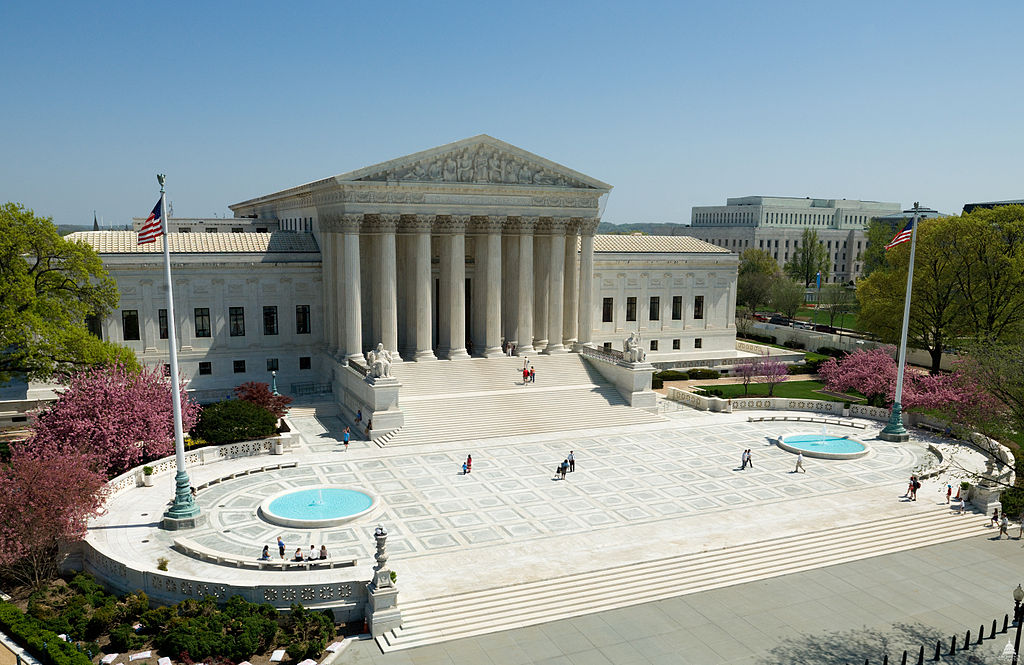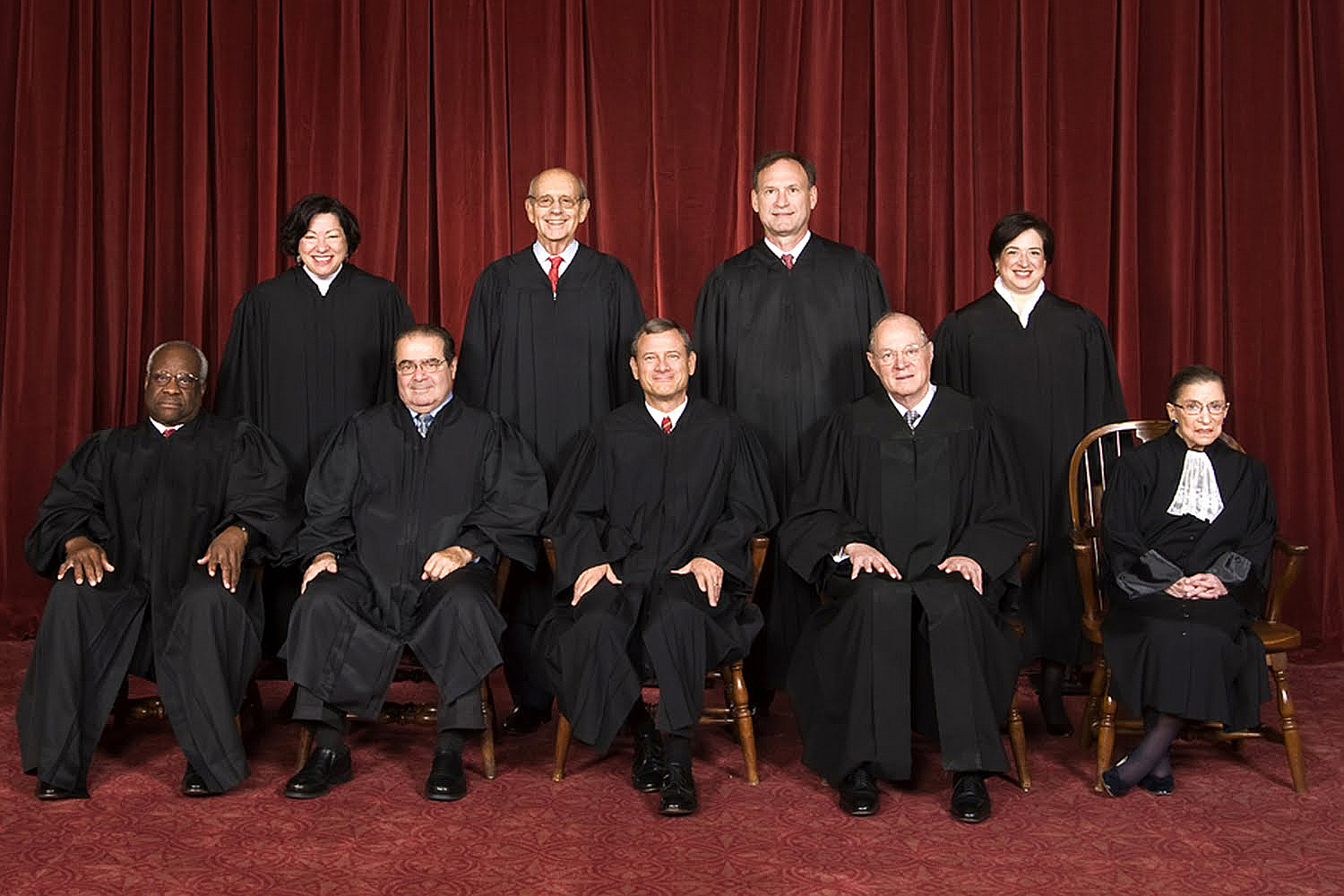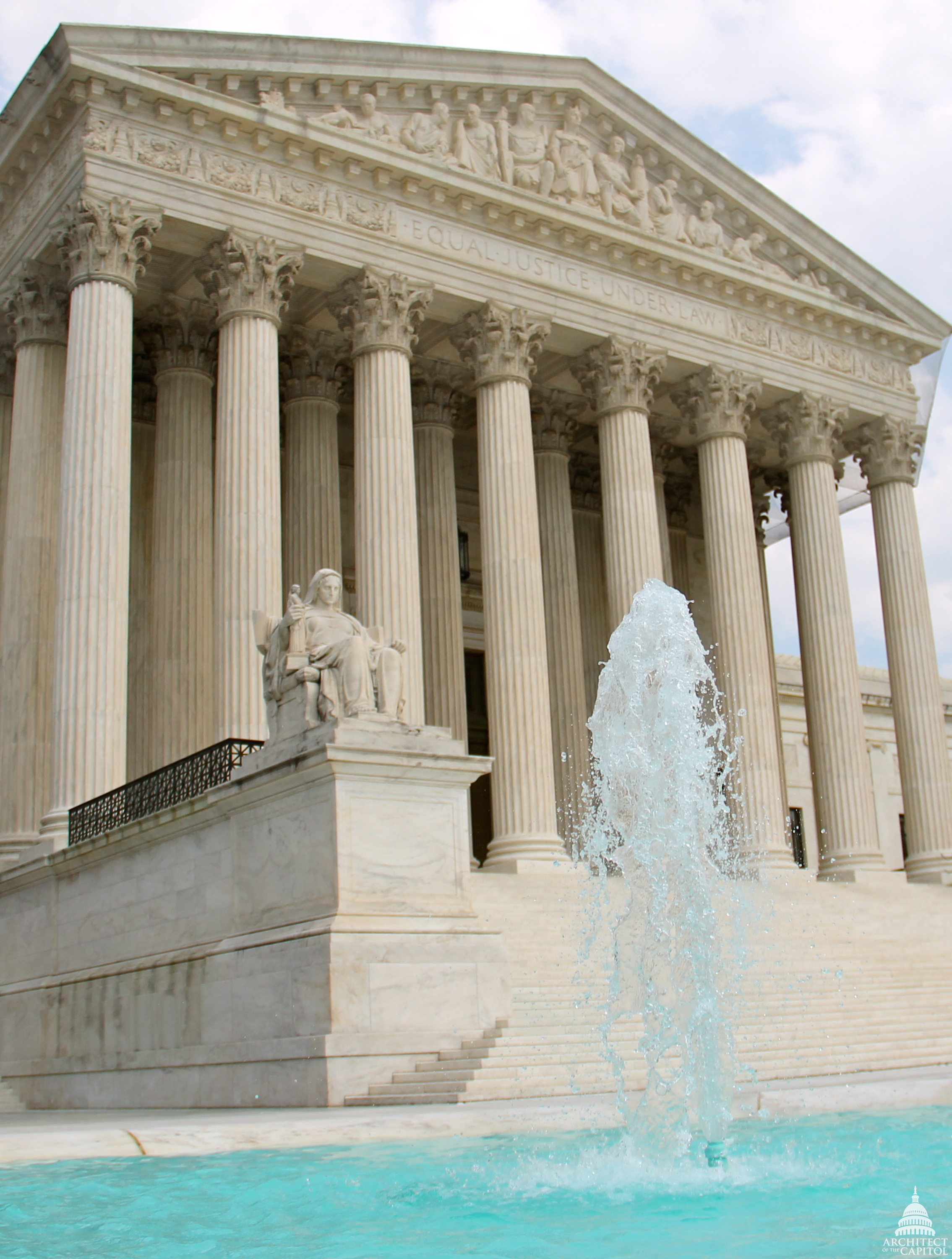
News outlets report the U.S. Supreme Court may review the 2015 Obergefell v. Hodges decision that overturned state marriage laws and instituted same-sex marriage nationwide.
Kentucky county clerk Kim Davis — who has been taken to court for declining to issue same-sex marriage licenses — is appealing to the U.S. Supreme Court. She is also challenging the essence of the Obergefell ruling.
She [Kim Davis] claims the high court’s decision in Obergefell — extending marriage rights for same-sex couples under the 14th Amendment’s due process protections — was “egregiously wrong.”
“The mistake must be corrected,” wrote Davis’ attorney Mathew Staver in the petition. He calls Justice Anthony Kennedy’s majority opinion in Obergefell “legal fiction.”
The petition appears to mark the first time since 2015 that the court has been formally asked to overturn the landmark marriage decision. Davis is seen as one of the only Americans currently with legal standing to bring a challenge to the precedent.
Back in 2015, we said that Obergefell was about a lot more than just same-sex marriage. The bigger question has always been about how marriage will be defined in America and who gets to write that definition. From 2004 to 2015, voters in more than three-fifths of the country democratically passed laws and amendments defining marriage in their respective states. In most cases, those measures defined marriage as the union of one man and one woman. Voters in three states chose to define marriage differently. The court’s Obergefell decision struck down every one of those state marriage laws.
In 2020, U.S. Supreme Court Justices Clarence Thomas and Samuel Alito made blunt statements that Obergefell has had “ruinous consequences for religious liberty,” saying it lets courts and governments label people who believe in traditional marriage “as bigots, making their religious liberty concerns that much easier to dismiss.”
Support for same-sex marriage has actually declined in recent years. Reversing the U.S. Supreme Court’s Obergefell decision may not seem likely right now, but the same thing seemed true of Roe v. Wade 50 years ago.
The reality is Obergefell was a deeply flawed decision in 2015. It’s still a deeply flawed decision today. And as Justices Thomas and Alito said in 2020, “the Court has created a problem that only it can fix.”
Articles appearing on this website are written with the aid of Family Council’s researchers and writers.




